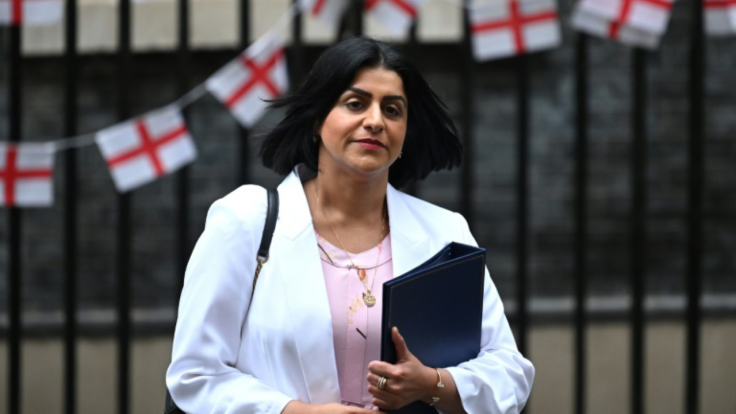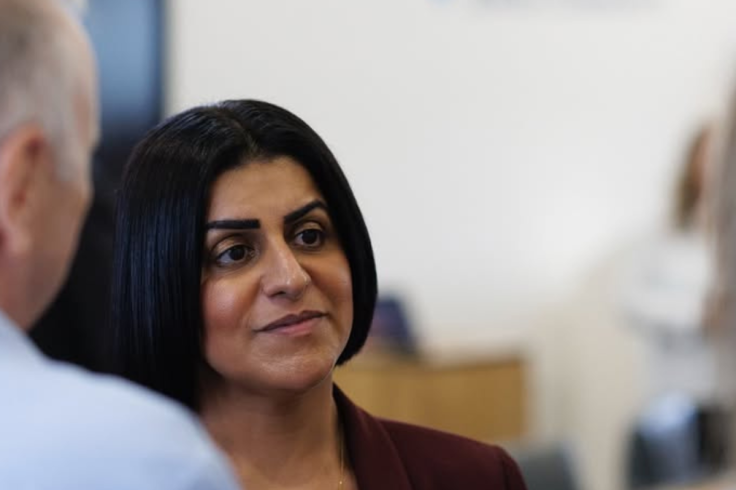Shabana Mahmood Says Current Migration Policies Are Destructive And 'Tearing Country Apart'
Mahmood unveils tough asylum reforms, warning illegal migration is fracturing UK communities and systems.

On 16 November 2025, Home Secretary Shabana Mahmood delivered a searing indictment of the UK's immigration crisis, declaring that illegal migration is 'tearing our country apart' and placing unsustainable strain on communities already under pressure.
Since her appointment on 5 September, 10,289 people have arrived via small boats. In response, the Labour government unveiled sweeping asylum reforms, offering only temporary refugee status and fast-track deportations, in a bid to restore border security.
This high-stakes pivot, blending tough enforcement with expanded safe routes, has ignited debates over the UK's 2025 immigration policy, as political tensions rise and Labour MPs wrestle with internal divisions over migration control.
A Moral Mission Rooted in Heritage
Shabana Mahmood, the daughter of legal migrants who arrived from Pakistan in the late 1960s, framed tackling illegal migration as a 'moral mission' during her BBC interview on 16 November 2025. 'This is a moral mission for me because I can see that illegal migration is tearing our country apart,' she stated, emphasising how the broken system allows rule-flouters to 'abuse' it without consequence.
By acknowledging inherited failures—like the scrapped Rwanda scheme—Mahmood seeks to rebuild trust, urging parliamentary buy-in for changes that deter exploitation while upholding humanitarian values. Her candour highlights the emotional toll of unmanaged flows, where local strains fuel national unease.

Sweeping Reforms to Rebuild a Broken System
Mahmood's overhaul, described as the most significant in modern times, abolishes permanent refugee protection. Instead, claimants will receive temporary status for 30 months, subject to regular reviews, with successful applicants facing a 20-year wait for settlement. Announced to MPs on 17 November 2025, these measures include fast-track deportations for failed asylum seekers and foreign criminals, curbing multiple appeals and overhauling human rights legislation.
To deter smugglers exploiting Britain's perceived generosity, the reforms expand safe and legal routes for genuine claimants, potentially easing small boat perils. However, controversy brews over discretionary support cuts for able-bodied seekers, upending sanctuary assumptions, as CNN reports.
These changes aim to recalibrate the UK's global role, integrating skilled refugees more swiftly for workforce gains while prioritising domestic sustainability in the migration crisis.
Backlash and the Battle for Party Unity
The proposals have ignited a spectrum of responses: relief from voters fatigued by crisis, alarm from rights groups over eroded protections. Shadow critics decry the 10,000 crossings under Labour's watch. Reuters notes the government's intent to revise human rights law to enable swift removals.
Adding pragmatic bite to asylum reform, Mahmood has threatened Trump-style visa bans on uncooperative nations. With net migration reportedly down nearly 50%, the government argues that these policies could stabilise communities, but critics warn they risk alienating anti-smuggling allies.
Voices from The Times to think tanks depict Britain at a crossroads, balancing compassion and control. The reforms could redefine the national stance on illegal migration, boosting cooperation on visa bans and safe routes for enduring balance.
Mahmood's bold stance marks a turning point against the UK's illegal migration scourge, promising fairer frameworks. As the reforms take effect, they could begin to mend tears while safeguarding arrivals via safe routes. In this vision, migration becomes a force that enriches, not divides, the nation.
© Copyright IBTimes 2025. All rights reserved.





















